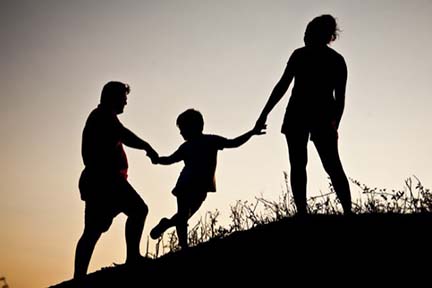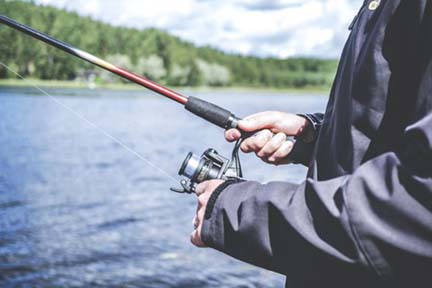
Press Release
FOR IMMEDIATE RELEASE: June 7, 2021
CONTACT: Bob Wheaton, 517-241-2112, wheatonb@michigan.gov
MDHHS shares improvements to Michigan’s child welfare system
Court appearance highlights continued reform that protects youth, helps families
LANSING, Mich. – The Michigan Department of Health and Human Services (MDHHS) and court-appointed federal monitors today shared continued significant improvements made to the state’s child welfare system.
Accomplishments continue under the administration of Gov. Gretchen Whitmer, who took office in January 2019. Today’s updates came during a virtual federal court hearing to address progress during the first six months of 2020 – when the state made inroads even amid the challenges of the COVID-19 pandemic.
During the pandemic, MDHHS child welfare staff continued to make important regular contacts with children under state care, using technology to meet with children virtually even when they could not meet in person. From March to June 2020, 97% of monthly worker visits with children in foster care occurred.
“MDHHS and its Children’s Services Agency remain dedicated to accomplishing the priorities that have been in place based on the department’s agreement with the court,” said MDHHS Director Elizabeth Hertel. “They include strongly focusing on child safety and well-being in foster homes and child-caring institutions, maintaining family connections, ensuring we find suitable permanent homes for children in a timely fashion, and continuing to shift child welfare toward a more prevention-focused framework.”
In June 2019 – five months after Whitmer took office – Judge Nancy G. Edmunds of the U.S. District Court for the Eastern District of Michigan approved a new agreement that streamlined the monitoring process, allowing MDHHS to devote more resources to directly supporting children and families.
During the six-month period covered by the new court monitoring report, Michigan improved data collected by the state’s child welfare technology system. That provides staff with better information to keep children safe and families together. The state also improved its performance by meeting the standard for timely completion of Children’s Protective Services investigations of reported child abuse or neglect.
Today’s court appearance was the first for Demetrius Starling as the new executive director of the department’s Children’s Services Agency.
“I also want to commend the state for what seems to be a very energetic start to the work that Director Hertel and Director Starling are supervising and overseeing,” Judge Edmunds said. “I’m glad to see that the department is taking a really aggressive approach to resolving these outstanding problems.”
Starling took over last month following the departure of JooYeun Chang, who received praise from the court for her reform efforts.
“I was inspired by the progress we made under the leadership of former director Chang,” Starling said. “I am dedicated to building on our progress. We are committed to addressing the needs of Michigan’s most vulnerable children. Michigan has made significant strides in improving safety for children in care as a result of our continued meaningful collaboration with private child welfare agency partners and community stakeholders. That will remain a top priority. If we do that, Michigan eventually will be able to exit federal court oversight.”
The report released today by the court monitors shows Michigan met commitments for:
- Generating from its child welfare information system accurate and timely reports and information regarding the requirements in the court agreement.
- 90% of all investigations of reported child abuse or neglect to be completed within the required time frames.
- 95% of foster care workers to have caseloads of 15 or fewer children.
In addition, MDHHS has further made progress in priority areas mentioned during last year’s court appearance. That includes continuing to take steps to reduce maltreatment of children in foster care and provide increased support to relative caregivers so they can keep children safe.
The department also has made additional progress in updating the child welfare technology system that is used by caseworkers and used to track data to report to the court that demonstrates improvements. The department is beginning to transition to a new information technology system. “We know that the top priority for child welfare staff is engaging directly with families and children instead of being hindered by an outdated technology system,” Starling said.
MDHHS also shared with the court today comprehensive reform actions the department has taken in the wake of the death of a child who was improperly restrained by staff at a child-caring institution in Kalamazoo in May 2020. That includes restricting the use of restraints in facilities, reducing the number of youth in child-caring facilities by placing children in more family-like settings or reunifying them safely with their families more quickly and creating a task force that recommended reform of child-caring facilities.
To view the latest federal court monitor report and other information, go to www.michigan.gov/ChildWelfareAgreement. |









 The Department of Natural Resources has three big reasons for you to get outdoors Saturday, June 12, and Sunday, June 13. Michigan’s “Three Free” weekend – two full days when residents and out-of-state visitors can grab a fishing rod, ride the off-road trails and visit state parks – is back and all free of charge.
The Department of Natural Resources has three big reasons for you to get outdoors Saturday, June 12, and Sunday, June 13. Michigan’s “Three Free” weekend – two full days when residents and out-of-state visitors can grab a fishing rod, ride the off-road trails and visit state parks – is back and all free of charge.
 For the best outdoor experiences, the DNR urges everyone to put safety first when they’re enjoying Michigan’s woods, water and trails. Helpful safety tips – for ORV, boating, beach, fire and other topics – are available at
For the best outdoor experiences, the DNR urges everyone to put safety first when they’re enjoying Michigan’s woods, water and trails. Helpful safety tips – for ORV, boating, beach, fire and other topics – are available at 